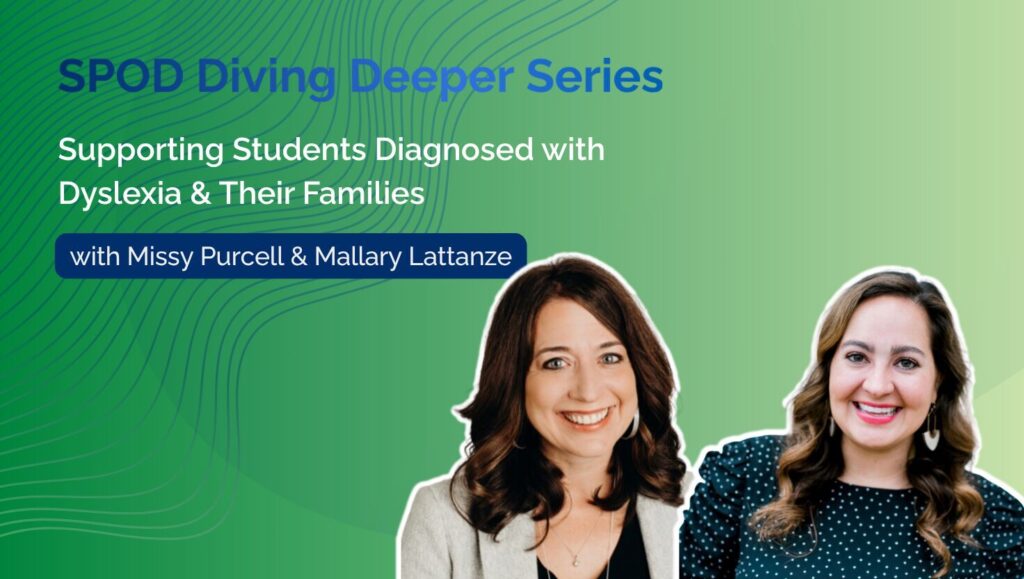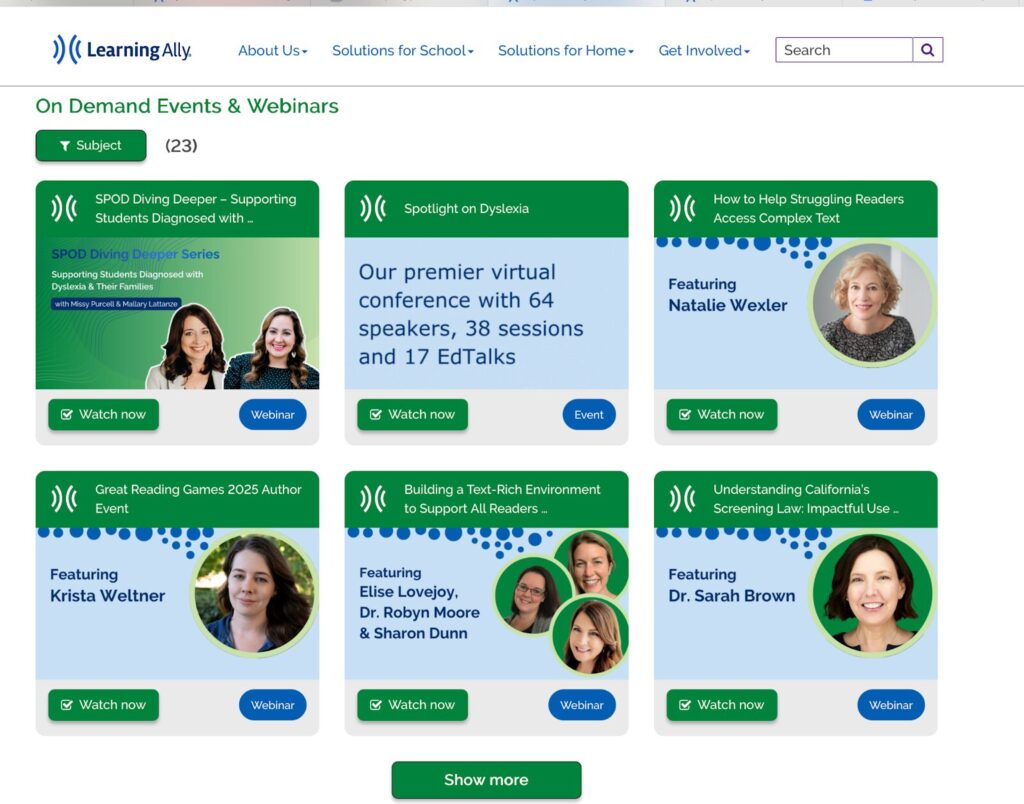
In the rapidly evolving field of education, understanding and supporting students with dyslexia is crucial. The recently held SPOD Diving Deeper session, “Supporting Students Diagnosed with Dyslexia & Their Families,” with the dynamic duo of Missy Purcell and Mallary Lattanze, offered invaluable insights into strategies and support methods for students diagnosed with dyslexia and their families. Hosted by Learning Ally, this session was a continuation of the impactful discussions from their 10th Annual Spotlight on Dyslexia virtual conference.
The session was moderated by Bianca Dino, Manager of Professional Learning at Learning Ally, who set the stage for an engaging discussion aimed at deepening educators’ understanding of dyslexia and the required educational support systems.
Understanding the Dyslexic Student’s Journey
The discussion delved into both the home and school environments, exploring the signs and symptoms that might indicate a student is struggling with dyslexia. Focusing on bridging the gap between understanding and action, our speakers emphasized the importance of recognizing signs such as difficulties with reading and writing tasks, frustration with homework, and struggles in other subject areas like math due to dyslexia’s broad impact.
Effective Communication and Collaboration with Families
A key takeaway was the importance of effective communication with families. Purcell and Lattanze advised educators to use parent-friendly language, encourage questions, and foster two-way communication. This approach not only builds trust but also empowers parents to partner effectively with schools in supporting their children.
Encouraging a Holistic Approach to Education
The session underscored the necessity of a holistic approach to teaching students with dyslexia. Recognizing their strengths in areas such as art, music, sports, and leadership can help in building a supportive educational environment. The presenters encouraged offering leadership opportunities and advocating for normalizing dyslexia within school cultures to eliminate stigma and foster a more inclusive atmosphere.
Utilizing Data to Drive Instruction
Data-driven instruction was highlighted as an essential strategy. Understanding assessment data allows educators to tailor interventions and support mechanisms that meet the unique needs of dyslexic students. Purcell and Lattanze provided actionable insights into forming effective plans based on continuous analysis and a summary of data.
The Critical Role of Audiobooks
The session emphasized the role of audiobooks in removing the cognitive load of decoding for dyslexic students, allowing them to access complex grade-level content independently. Learning Ally’s audiobooks provide K-12 students with the chance to engage with stories and information beyond their typical reading capabilities, fostering both confidence and comprehension.
Overall, the “Supporting Students Diagnosed with Dyslexia & Their Families” session provides educators with a comprehensive understanding of the complexities of dyslexia. By adopting empathetic, data-driven, and collaborative strategies, teachers can significantly improve the learning experiences of students with dyslexia.
▶️ Watch the full recording on-demand.
Ready to dive deeper?

Explore the rest of the SPOD Diving Deeper series and other great events on our Webinars & Events page.